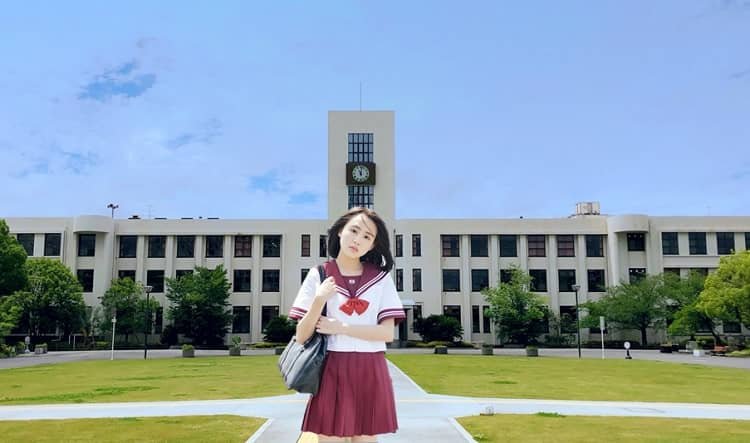Studying in Japan is a dream for many students from across Asia, but managing the high costs associated with tuition, living expenses, and limited part-time work opportunities can be overwhelming. To bridge this financial gap, the Sato Yo International Scholarship Foundation (SISF) provides vital support to international students who are self-funding their education in Japan.
This scholarship is specifically designed to support individuals who are not financially supported by family or major scholarships and who demonstrate a commitment to academic excellence and future leadership. This comprehensive blog explores everything you need to know about the SISF Scholarship—from eligibility and application details to selection tips and beneficiary experiences.
Summary of the SISF Scholarships for Self-Supporting
- Host Country: Japan
- Host University: Various universities in Japan
- Level: Undergraduate, Graduate, Postgraduate
- Funding: Up to ¥200,000
- Deadline: August 20, 2025
📖 About the SISF Scholarship
Offered by the Sato Yo International Scholarship Foundation, this scholarship provides financial assistance to deserving students from Asia who are studying at Japanese universities without any major external financial support. The program focuses on students who are committed to their education and take full responsibility for funding their academic journey.
Program Highlights:
- Monthly financial support for daily living.
- Open to Asian students in Japanese undergraduate and graduate programs.
- Ideal for students with no other significant scholarships.
🎯 Foundation Goals
The Sato Yo Foundation is committed to enhancing mutual understanding among Asian nations and fostering the development of global-minded young leaders. The scholarship aims to:
- Promote academic and cultural exchange across Asia.
- Encourage students to fund their own education through determination and resourcefulness.
- Empower individuals who can contribute positively to their home countries and Japan.
Join USA and Canada Scholarships & Fellowships Facebook Group for more updates
✅ Who Can Apply?
To be eligible for the SISF Scholarship, you must meet the following requirements:
1. Nationality
- Must be a national of an Asian country (List given below).
- Japanese citizens are not eligible.
2. Educational Status
- Enrolled in a full-time undergraduate, master’s, or doctoral program in Japan.
- Must have a valid student visa.
3. Financial Situation
- Must be self-funded, meaning you are not receiving large-scale government or private scholarships.
- Priority is given to students with low financial resources and no family support.
4. Academic Record
- Consistently strong academic performance.
- A GPA equivalent of at least 2.3 on a 3.0 scale is typically expected.
5. Language Proficiency
- Japanese is not mandatory, but familiarity with the language may be helpful, especially during events or interviews.
Taiwan Government Fellowship for International Students
Eligible Nationalities
The candidates from the following countries can apply for the
- Bangladesh
- Bhutan
- Brunei
- Cambodia
- India
- Indonesia
- Laos
- Malaysia
- Maldives
- Myanmar
- Nepal
- Pakistan
- Philippines
- Singapore
- Sri Lanka
- Thailand
- East Timor
- Vietnam
🏫 Eligible Universities in Japan
The scholarship is open to students studying at several top-tier and recognized universities, such as:
- University of Tokyo
- Osaka University
- Kyoto University
- Tohoku University
- Waseda University
- Keio University
- Sophia University
- Tokyo Institute of Technology
- Kyushu University
- Hiroshima University
- Other selected public and private universities
Be sure to check with your institution’s international student office to confirm its eligibility.
💰 Scholarship Benefits
Here’s what successful applicants can expect:
| Education Level | Monthly Amount (JPY) | Maximum Duration |
|---|---|---|
| Undergraduate | ¥180,000 | 2 years |
| Master’s Degree | ¥200,000 | 2 years |
| Doctoral Studies | ¥200,000 | 3 years |
Note: The award ends when the student graduates, changes programs, or transfers to another institution.
Join USA and Canada Scholarships & Fellowships Facebook Group for more updates
📑 Documentation Checklist
Applicants need to prepare and submit the following:
- Completed scholarship application form
- Personal essay outlining financial background and academic goals
- Proof of current enrollment or acceptance
- Academic transcripts
- Copy of passport and residence card
- Income certificate (self and/or family)
- Recommendation letter from an academic supervisor
- An optional Japanese language certificate
- Japanese bank account information
Always verify the latest requirements with your university.
📝 Application Instructions
Follow these steps to apply:
Step 1: Get Application Materials
- Contact your university’s international office or SISF representative.
Step 2: Collect Supporting Documents
- Prepare all required forms, essays, and certificates.
Step 3: Submit to Your University
- Please submit your complete application to your university office, rather than directly to the foundation.
Step 4: University Endorsement
- Your university reviews and nominates applicants to the SISF committee.
Step 5: SISF Final Review
- Shortlisted applicants may be invited for an interview.
Step 6: Results and Disbursement
- Awardees are informed and begin receiving monthly payments in either April or October.
Apply for the SISF Scholarships for Self-Supporting Students.
🧠 Selection Procedure
Applicants are selected based on a combination of:
- Strong academic performance
- Demonstrated financial need
- Clear educational and professional goals
- Community engagement or leadership experience
- Well-written personal statement
- Interview performance (if applicable)
DTU Compute, Denmark PhD Scholarship in Applied Mathematics
🗓️ Application Timeline (2025)
The next deadline is August 20, 2025.
🎯 Application Tips
Want to boost your chances? Keep these in mind:
- Begin Early: Gathering paperwork and recommendation letters takes time.
- Be Transparent: Clearly describe your financial situation.
- Craft a Strong Essay: Write a personalized and specific essay that reflects your goals.
- Show Your Efforts: Include any part-time jobs or community activities you’ve undertaken.
- Polish Your Application: Have someone review your documents for clarity and grammar.
- Be Interview-Ready: Practice answering questions about your studies and ambitions.
Join Scholarships in Australia Facebook group for more Scholarships and Fellowship updates
MIT Free Online Courses 2025 | Learn from the Best

🌟 Life After the SISF Award
Beyond the financial support, recipients benefit from:
- Membership in a respected international alumni network
- Opportunities to join SISF events, conferences, and leadership summits
- Encouragement to give back through volunteerism and mentoring
- Increased visibility for potential job and academic opportunities in Japan
Oxford University Rhodes Scholarship
🏆 Recipient Testimonials
🌍 Nguyen from Vietnam – Kyoto University
“I used to struggle to make ends meet. Thanks to SISF, I’ve completed my degree with peace of mind. The support opened many doors for my career and personal growth.”
🌍 Dewa from Indonesia – Keio University
“Receiving the SISF Scholarship gave me the motivation and the community I needed to thrive in Japan. I now work in the development sector and mentor younger students.”
❓ FAQs
Q1: Can I still apply if I receive a small local grant?
A: Yes, as long as it isn’t a major/full scholarship.
Q2: Do I need to be fluent in Japanese?
A: No, but knowing the basics helps, especially for interviews or community events.
Q3: Can I send my application directly to SISF?
A: No. Applications must go through your university.
Q4: Will the scholarship continue if I transfer schools?
A: No. Transferring typically results in automatic cancellation.
Q5: Can I apply as a freshman undergraduate student?
A: Yes, first-year students are welcome to apply if they are enrolled and meet the criteria.
📝 Final Thoughts
The SATO YO International Foundation Scholarship (SISF) is a lifeline for international students studying in Japan on their own. More than just financial assistance, it is a recognition of your hard work, independence, and potential to make a difference.
If you’re a self-supporting student in Japan with big dreams and limited means, this scholarship could be your stepping stone to success. Take the leap—plan early, apply with confidence, and join a community of future Asian leaders.
International Scholarships at the University of Bradford, UK
Fully Funded UNSW Research Scholarships in Australia
The Max Planck Institute Scholarship Program for International Researchers
International Scholarships at the University of Bradford, UK
Marie Skłodowska-Curie Actions (MSCA) European Doctoral Scholarships


